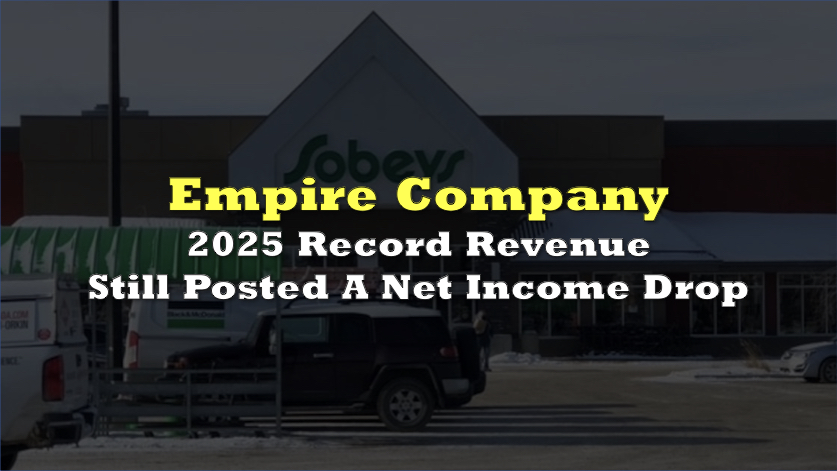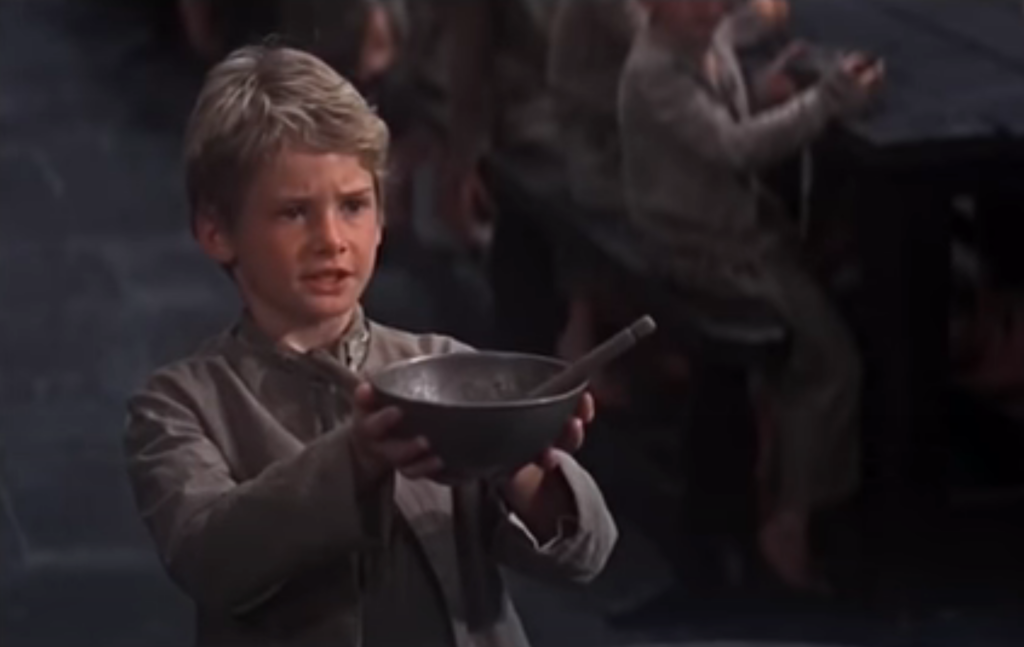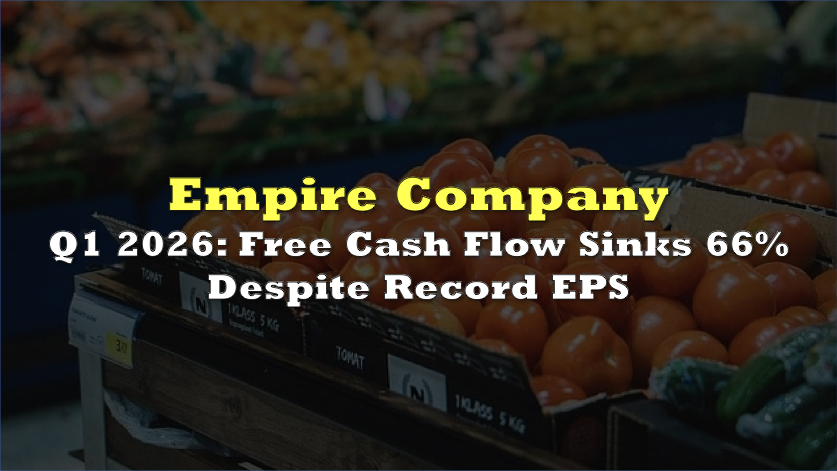Sobeys parent firm Empire Company (TSX: EMP.A) reported its Q4 and full-year 2025 financials, with booked quarterly revenue of $7.64 billion, up 3.0% year-on-year, and full-year sales of $31.28 billion, a 1.8% rise.
Gross profit advanced 5.1% in the quarter, lifting gross margin 50 bp to 27.6%, but annual net margin slipped 10 bp to 2.4% as inflation-driven wage hikes and an $81 million surge in share-based compensation diluted gains.
Quarterly operating income grew 7.2% to $313 million; full-year operating income declined 1.7% to $1.29 billion despite disciplined shrink initiatives.
Net income for the quarter landed at $173 million, up $24 million versus last year, translating to diluted EPS of $0.74. Crucially, the share count fell 3.7% year-over-year; without that tail-wind, bottomline growth would have been closer to zero.
However, net income for the year fell to $700 million, a $26 million decline from the prior year despite record revenue.
Adjusted EBITDA in the fourth quarter was $599 million, up 6.4%, with margin widening 20 bp to 7.8%. On a full-year basis, adjusted EBITDA gained 4.1% to $2.42 billion and margin improved 10 bp to 7.7%, helped by shrink reduction, private-label mix, and lower distribution costs.
Adjusted EPS advanced to $0.74 in Q4 and to $2.98 for the year, greatly affected by the $12 million tied to ending the Ocado exclusivity, $2 million of restructuring costs, and the waning impact of the 2024 cybersecurity event.
Operating cash flow edged up 2.6 % to $2.13 billion, thanks to a $107 million working capital release and higher depreciation add-backs. Lower capex that fell 13 % helped, but heavier lease repayments and reduced asset-sale proceeds left free cash flow virtually flat at $728 million.
The company nevertheless funneled the bulk of that cash into $400 million of buybacks at an average $40.46 per share—and absorbed an $11 million buyback tax hit under Canada’s new 2% share repurchase tax—while upping the quarterly dividend 10% to $0.22.
The result was a $25 million increase in cash on hand, putting cash balance at $285 million; however, after-yearend guidance calls for capex to jump to roughly $850 million in fiscal 2026. The company logged $3.13 billion in current assets while current liabilities ended at $4.10 billion.
Operationally, Empire’s food banners continued to outperform inflation: same-store food sales rose 3.8% in Q4 and 2.3% for the year, beating grocery CPI and capturing share in both full-service and discount formats. Fuel was the spoiler: volume softness and the absence of last year’s Western Canada network contributed to a 4.2% annual decline.
Crombie REIT equity earnings jumped 48% to $65 million, up $21 million, offsetting weaker real estate sales, while the Voilà e-commerce platform saw its cost burden trimmed after the Ocado agreement rewrite.
Looking ahead, management targets “long-term adjusted EPS growth through net earnings and share purchases” and has renewed its NCIB for another $400 million in FY26. Planned capex of $850 million—half for store remodels, a quarter for IT—will demand robust cash generation just as US–Canada tariff volatility threatens cost escalation. This comes amid the backdrop of lease obligations being already equal to 3.9× of 2025 EBITDA and interest coverage edging down to 8.2×.
Empire Company last traded at $51.90 on the TSX.
Information for this story was found via the sources mentioned. The author has no securities or affiliations related to the organizations discussed. Not a recommendation to buy or sell. Always do additional research and consult a professional before purchasing a security. The author holds no licenses.









